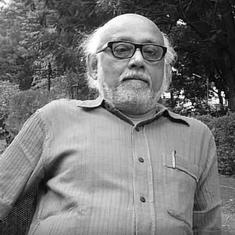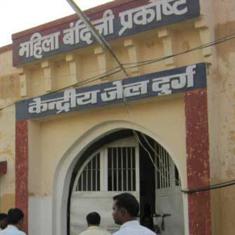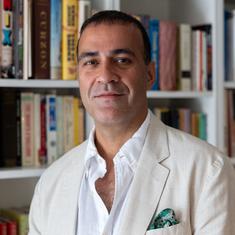Delhi violence: HC gives Zee News one more chance to reveal source of alleged confession
A Jamia student said he was aggrieved by various publications reporting that he confessed to organising and inciting communal violence.

The Delhi High Court on Monday gave Zee News one more opportunity to disclose its source for an alleged confessional statement of a Jamia Millia Islamia student, who was arrested in a case related to the February communal violence, Live Law reported.
Justice Vibhu Bakhru also turned down the request to submit the name of the journalist who procured the student’s alleged confessional statement in a sealed cover. This came after the Delhi Police Special Cell said that the information was not leaked by its officers. The police also told the court that they were aggrieved by the news report in which the alleged confessional statement of Jamia student Asif Iqbal Tanha was leaked.
The 24-year old student, who was arrested in May and is currently lodged in judicial custody in connection with the February violence, sought directions for media houses to remove sensitive information about the investigation. In his petition, Tanha stated that he was aggrieved by various publications reporting that he has confessed to organising and inciting the communal violence. He alleged that he was coerced to sign certain papers while in custody.
Advocate Vijay Aggarwal, the counsel for Zee News, argued that the journalist was protected against disclosing the “source” of his/her information, according to Bar and Bench. Aggarwal also claimed that the case involved the constitutional right of a journalist and a person “who himself had no regard for the Constitution”.
The judge, however, said: “You have no material whatsoever to make that allegation...Police itself is making a vigilance enquiry [into the leak]. What is your Constitutional right to take out the document?”
Agarwal said journalists around the world procure documents, as was done in the current case. “As a journalist you misrepresented the document to a different level,” the judge told the counsel. “Even the accused has no right to see it [before the filing of chargesheet].”
The court said confessional statements of an accused which are not in public domain cannot be accessed and published, PTI reported. “Your editor didn’t know [that it was not part of public record],” the judge asked. “Put on affidavit whatever you think your right is.”
The court said it “hoped” that the Delhi Police would “put their house in order” also to not affect the investigation.
The matter will be heard next on October 23.
Tanha said that the alleged disclosure statements, which are the subject matter of news reports, were not given voluntarily and are inadmissible as evidence. He also alleged that Delhi Police officers have leaked the statement to media, with the “mala fide intention of prejudicing” him in pending proceedings.









